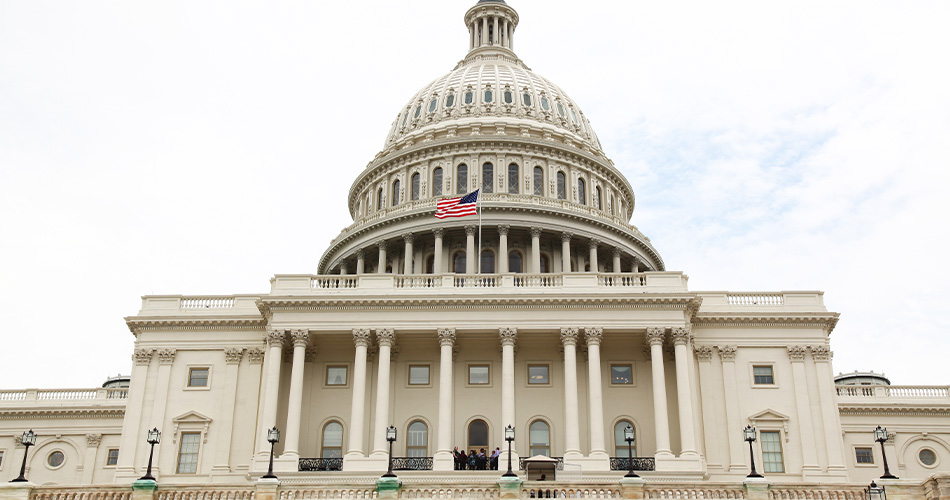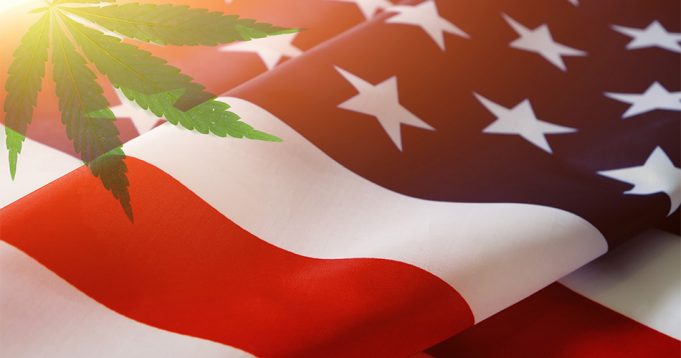As more U.S. states debate marijuana legalization, the federal prohibition of the substance is challenged. So, how does Joe Biden’s White House respond?
As the federal government continues to extrapolate with states changing their laws to allow medical and recreational marijuana, observers and consumers are stuck trying to understand what is in store for legalization efforts. The latest indication of this comes from the Biden administration’s most recent budget request for the upcoming fiscal year. Biden, like other presidents before him, has dominated Washington, D.C., local politics by leaving the national capital’s hundreds of thousands of residents voiceless.
For our readers outside of the United States, Washington, D.C., is directly administered by the federal government and Congress. What this means is that the federal government is the dominating power over the District of Columbia and municipal government. In brief, the District of Columbia has a strong mayor-council form of government that is empowered to operate under Article 1 of the United States Constitution and a law referred to as the District of Columbia Home Rule Act. Under this law, Washington, D.C. can exercise its devolved power through a popularly-elected mayor and a 13-member council representing eight wards and seats, and a chairpersonship that is at-large. Congress, however, has the right to review and overturn laws that are implemented by the D.C. council and ultimately intervene in the city’s local affairs.
Understanding the role of D.C. and Congress

Based on this information, the federal government can have the final say on all policies within the District of Columbia. Based on this, it is crucial to understand why Biden’s latest budget request is a bit ironic when considering the president’s avowed position to reform national marijuana laws. President Biden’s latest budget proposal maintains a notable long-standing appropriations rider to prevent the U.S. Department of Justice from interfering in state-level marijuana reform efforts, and the District of Columbia’s citizens are once again dismayed to see its broad autonomy in regulating marijuana commerce within the district be trampled upon. This is also the third year in a row for this also to happen.
The budget also outlines that riders are needed to stay intact to safeguard the legal hemp industry from federal intervention. This is also to restrict funding for the promotion of legalizing Schedule I drugs. The president, however, has continued to refuse a ban on using tax dollars collected by the local government to implement a system of regulated adult marijuana sales in an environment that is otherwise politically accepting and yearning for a new and reliable source of tax income. Despite the benefits for the local government, the block for more home rule power in the District of Columbia generates criticisms from marijuana reform groups and citizens of the district itself. In 2014, voters in Washington, D.C., approved a local ballot measure, Initiative 71, that would have legalized and regulated marijuana for personal use for all adults over the age of 21 years. The measure was approved, by a vast majority, of 65.87 percent of voters on November 4, 2014, and was supposed to go into well full effect on February 26, 2015.
The Harris Rider
However, a congressional mandate referred to as the Harris rider. Reps. Jason Chaffetz and Mark Meadows, both Republicans, sent a letter to Muriel Bowser, the District of Columbia mayor at the time, to refrain from implementing Initiative 71 despite the law being certified. Rep. Andy Harris, another Republican lawmaker, is the namesake for the so-called Harris rider. Harris and his allies were able to insert a rider bill that amended a funding omnibus that blocked all further legalization efforts. Unfortunately, even in the years since, the Harris rider has remained and that is at issue.
Congressional Republicans led by Harris even went so far as to threaten prison time for Bowser and other District of Columbia officials through a law such as the Anti-Deficiency Act. This also “imposes criminal penalties on government employees who knowingly spend public funds in excess of their appropriated budgets.” City officials at the time were notified by D.C. Attorney General at the time, Karl Racine, who said the rider ultimately prohibited other officials from doing anything to move forward.
Double standards

Del. Eleanor Holmes Norton has particularly critical of the Biden administration. Norton, the District of Columbia’s delegate to the House of Representatives, has been particularly critical of the White House for simultaneously expressing support for the D.C. bid for statehood while additionally working to undermine the rights of the local government with respect to marijuana and criminal justice policy. Del. Norton is more than justified in this criticism. President Joe Biden is in a clear predicament here.
You see, President Biden issued a proclamation on October 6, 2022, announcing a tranche of pardons for people who were charged with simple federal marijuana possession convictions.
“There are thousands of people who have prior federal convictions for marijuana possession, who may be denied employment, housing, education opportunities as a result,” President Biden expressed in remarks dealing with the October 6 proclamation.
The president added that “my action will help relieve the collateral consequences arising from these convictions.” After this, the U.S. Department of Justice most recently opened up its online portal for individuals who wish to apply for a presidential pardon under this effort. Despite the October proclamation, the nonprofit National Organization for the Reform of Marijuana Laws (NORML) criticized the U.S. Department of Justice for its failure to allow applications finally. The department said “very soon” at the time.
Challenges
“Many of those eligible for forgiveness have suffered numerous lost opportunities over the years because of a lingering conviction for behavior that most Americans no longer believe should be a crime. They should not have to continue to wait for relief any longer,” notes NORML in that statement. On March 3, NORML said that the Office of the Pardon Attorney, the special office created by executive order, has finally “developed the subject form to collect information from potential pardon recipients.” 20,000 people are expected to apply to receive a pardon certificate from the Department of Justice. Even though this is happening, Biden is still showing much hesitation to finally reform marijuana laws in the United States for the benefit of victims of a systematically racist criminal justice system but for the benefit of state and national economies that view marijuana sales as a viable option.











